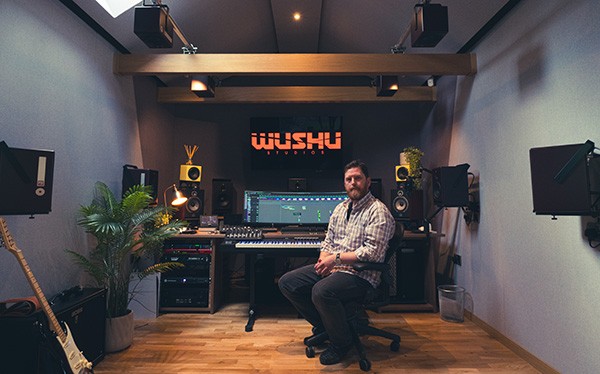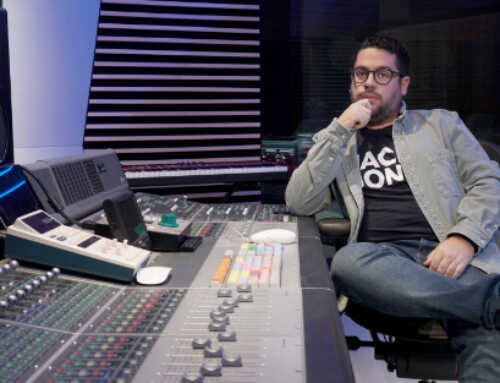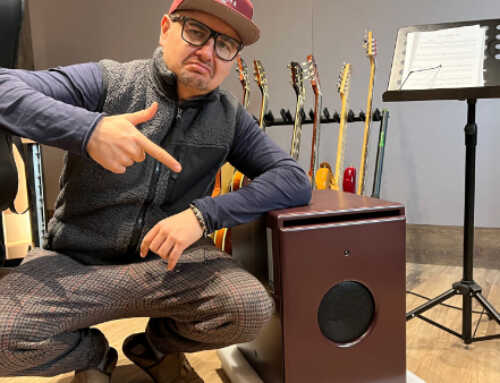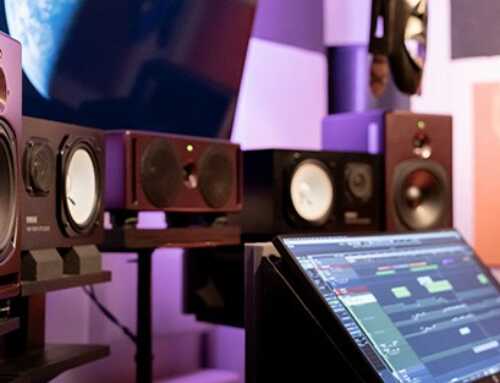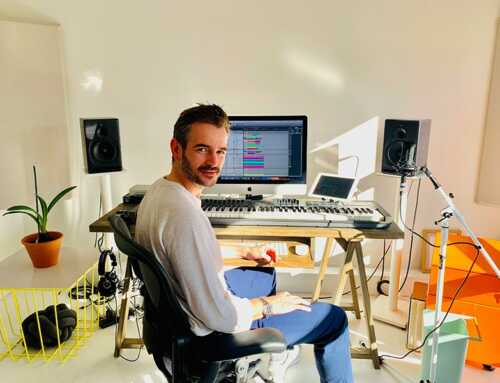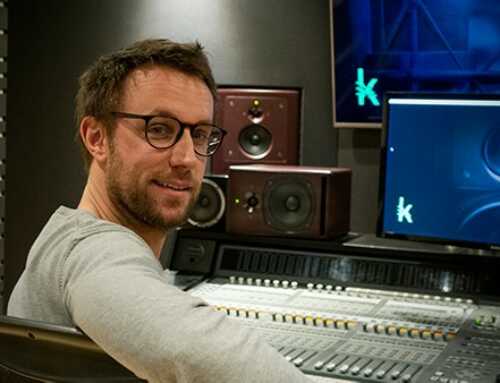Alan McDermott – Wushu Studios
The overnight shift to home working may not have been ideal, but for many like Alan McDermott, founder and studio director at Wushu Studios, it gave them the push they needed to create the perfect at-home studio.
Working in the games industry for the past 25 years, Alan had his work cut out for him at the beginning working on Gameboys – the eight-bit devices weren’t exactly known for their sound quality. However, throughout his career working for the likes of Evolution Studios and PlayStation, before making his mark founding up and coming development studio, Wushu Studios – he has seen how sound has changed within video games. His past projects include Driveclub, the MotorStorm series, and, most recently, collaboration projects such as Destruction AllStars with Lucid Games and assisting Larian Studios on Baldur’s Gate 3.
While Alan had a set-up at home, the pandemic made him realise that he needed to step it up a notch to truly be able to get the best out of his work. “Trusting mixes on a variety of speakers isn’t straight-forward in an untreated room or a minimally treated room. Having to double-check your mixes on headphones isn’t the most confidence inspiring…Covid was the catalyst for me to get it done – I started with very modest expectations about what I might be able to achieve, but thankfully, I went the whole-hog, and it’s been a game-changer.”
Upon consulting with Paul Mortimer at Emerging about his advice considering what Alan was looking to do – PSI Audio monitors were suggested. “I’ve worked with a wide variety of monitor solutions over the years, but I’d never heard PSI’s in action. Now I have. I’m totally convinced; they’re incredible.”
To build the perfect 7.1.4 Atmos set-up, we suggested an array of PSI Audio studio monitors, three A21m for the main front set, four A17m as the sides and rears and four A14m Studios as the ceiling speakers. In addition to this, we also supplied the Trinnov D-Mon 12 optimiser, room correction system and monitor controller, which calibrates his speaker system and corrects the volume, amplitude, delay and phase of each speaker, plus it enables full control of the master volume, select multiple sources, speaker sets and monitor foldown and bass management.
The fact that these were placed into a home studio didn’t impact the sound quality. In fact, Alan was impressed by how it worked in a smaller space. He mentioned that “One of my biggest problems was finding a solution to fit the space – it’s a relatively small room and to be surrounded by 12 speakers at, you know, 79 – 85 dB SPL, I couldn’t do that for very long, but what I found astonishing was that with the PSI’s I can monitor much lower and still comfortably hear deep into the noise floor without losing a lot of the kick or the punch. With the PSI rig, it stays there – at low volumes there’s actually no drop-off in power. This is something I’ve never really encountered with any other speaker brand; I absolutely love them. I think they’re fantastic.”
Combining the PSI’s with the Trinnov Audio D-Mon 12 optimiser allowed Alan to listen to previous mixes with a new level of transparency that he hadn’t been able to before. “The first thing I did was fire up a bunch of mixes that I’d signed off on. Mixes that were completed in a variety of mix environments. These are finished, approved, boxed off. I fired up a bunch of them and found myself straight away reaching for the mixer. Rolling off some of the top end on this or that, you know, those tweaks to get the right shine on a final mix. Things were popping out that were untraceable before. I’d catch myself and think ‘hang on, this is already done, I don’t need to do this – It’s already done and everyone was happy with it. The combo of the PSIs and the Trinnov is incredible.”
As Alan looks to the future, he believes that we will see more immersive audio in the gaming space, just as we have seen in film. “Immersive audio is definitely on the up and up with video games…any cinematics, broadcasts, advertisements for video games is absolutely a viable candidate for Atmos.” It’s also something that he’s keenly aware of when he works with other studios “I consult quite a bit with game studios about their facilities, something I did with Lucid Games, who have recently built three rooms in their studio space, and immersive audio is always a factor I present for clients to consider. It’s changing; it’ll become par for the course before long.”
He notes that the way in which the industry is moving means that developers need to keep up. “Video games have changed massively over the years, and now a cinematic sequence from a video game is almost indistinguishable from that of a high-end blockbuster movie and sound designers and mix engineers at game studios are pushing the boundaries and raising expectations – it’s an incredibly exciting time for game audio.”
And what impact do consumers have on the future of sound in gaming? A great deal, as Alan pointed out, “I think as Atmos becomes more widely adopted, at a consumer level, the potential for sound engineers across the industry to push their craft into the immersive space even more than they do already is infinite. Atmos, Ambisonics, 3D audio – it’s an incredibly exciting time.”
A few months in, is Alan happy that he took a chance on a new brand?
“I’m very happy that I took a leap of faith with Paul’s recommendation… I trust the speakers now that I’ve driven them quite a bit and I know there isn’t any leeway left to go with them; they are well-used after several months now. What I’m hearing day in; day out is some of the finest and most transparent sounding speakers I’ve ever heard, at their best – and I’m very happy indeed. I’m delighted that Paul was so accommodating in giving me a chance to hear these pristine speakers. I trust them; the sound that they deliver is crystal clear and totally transparent.”
We’ll take that as a yes then.

